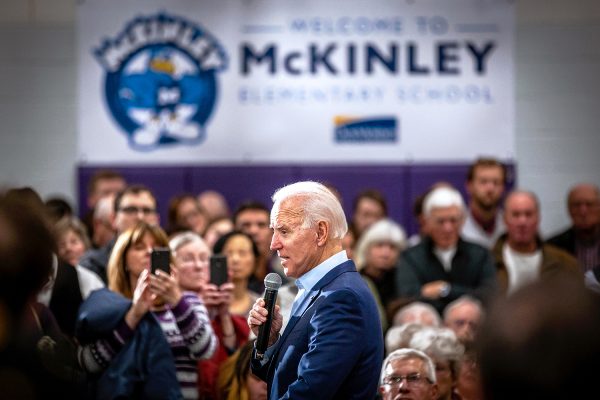
The appointment of Jake Sullivan as Joe Biden’s national security advisor is a strong hint that the new president’s focus on domestic issues — COVID-19, the economy, racial equity — will influence American foreign policy in the next four years.
While at the Carnegie Endowment for International Peace during the Trump Administration, Sullivan co-authored a report that argued American foreign policy had failed the American middle class. As Biden’s closest foreign-policy advisor, he can push for the return to Obama-style multilateralism, but this time with a laser focus on the interests of middle America.
Here’s what that could mean for the top items on Biden’s foreign-policy agenda: Afghanistan, China and Europe.
Afghanistan
The war in Afghanistan has escalated since Donald Trump reduced America’s troop presence in the country to 2,500. The Taliban is inflicting heavy damage on Afghan government forces and the civilian population. Forcing the Taliban back to the negotiating table could require the United States to send more troops, since the Taliban believe they are now in a position of strength. But that would contradict Biden’s ambition to end “forever wars” that have exhausted the American public.
Achieving a peace settlement that can be sold to the American people as a victory is going to be tough. The incoming administration has said it will review the deal Trump made with the Taliban in 2020, which promised a complete troop withdrawal in fourteen months provided the Islamist group entered into peace talks with the Afghan government and would not provide safe haven again to terrorists. Biden has expressed a desire to maintain a small military footprint in the country in order to conduct counterterrorism operations, but that will not give the United States significant leverage to influence the negotiations.
China
Biden will have to perform an even more delicate balancing act between conducting a foreign policy for the middle class and restoring America’s global leadership in his approach to China.
The Carnegie report argues for leveling the economic playing field by protecting American manufacturing jobs to increase the competitiveness of American industry. But too strong a reaction to Chinese protectionism could escalate the trade war Biden’s predecessor started, resulting in higher prices for Chinese-made goods and American companies being locked out of the Chinese market.
Biden will have to rally America’s allies into a collective stance on China, which could deter it from further aggression in the Taiwan Strait, the South China Sea and the Himalayas. This would align with Biden’s desire to strengthen the NATO alliance.
Europe
Trump’s unpredictability led to calls for “strategic autonomy” in Europe. Some countries, like Poland, have been wary of joining in this process for fear it will sow discord with the United States. But Biden should throw his weight behind the proposals. A stronger Europe doesn’t mean a weaker United States. If European countries invest more in their own defense, it will strengthen the combined power of NATO. If Biden is serious about reviving multilateralism, and if he continues America’s strategic reorientation from the Atlantic to the Indo-Pacific region, he should want strong allies by his side.
Strategic autonomy would allow the Europeans to operate independently of, but not without agreement from, the United States in their own neighborhood, reducing the need for American support.
This, in turn, could free up resources at home. In 2019, America spent $730 billion on defense, or 53 percent of federal discretionary spending (not counting Medicaid, Medicare and Social Security). Education received a tenth of that money: $74 billion, or 5 percent of discretionary spending. Health care received only slightly more: $79 billion. Housing got $88 billion.
Biden campaigned on making education, health care and housing more affordable. A stronger European defense could help him make good on that promise by reducing American military spending — and demonstrate to a weary American public that foreign policy can bring concrete benefits to them.
